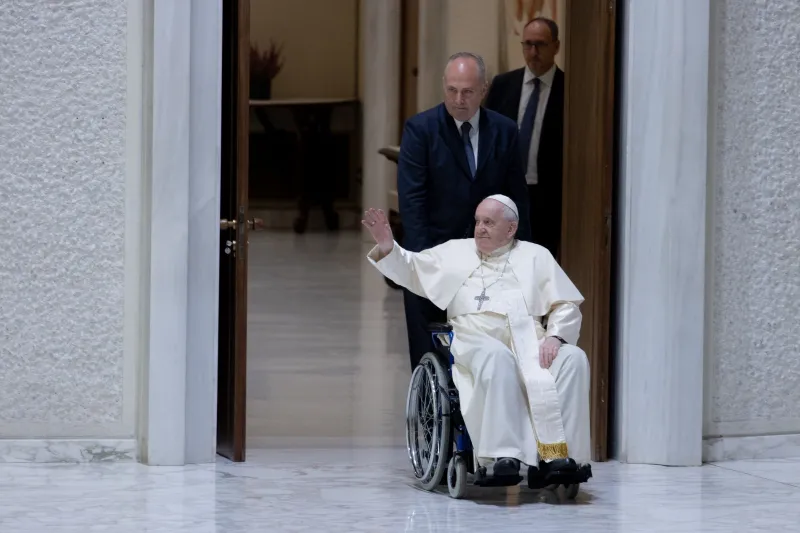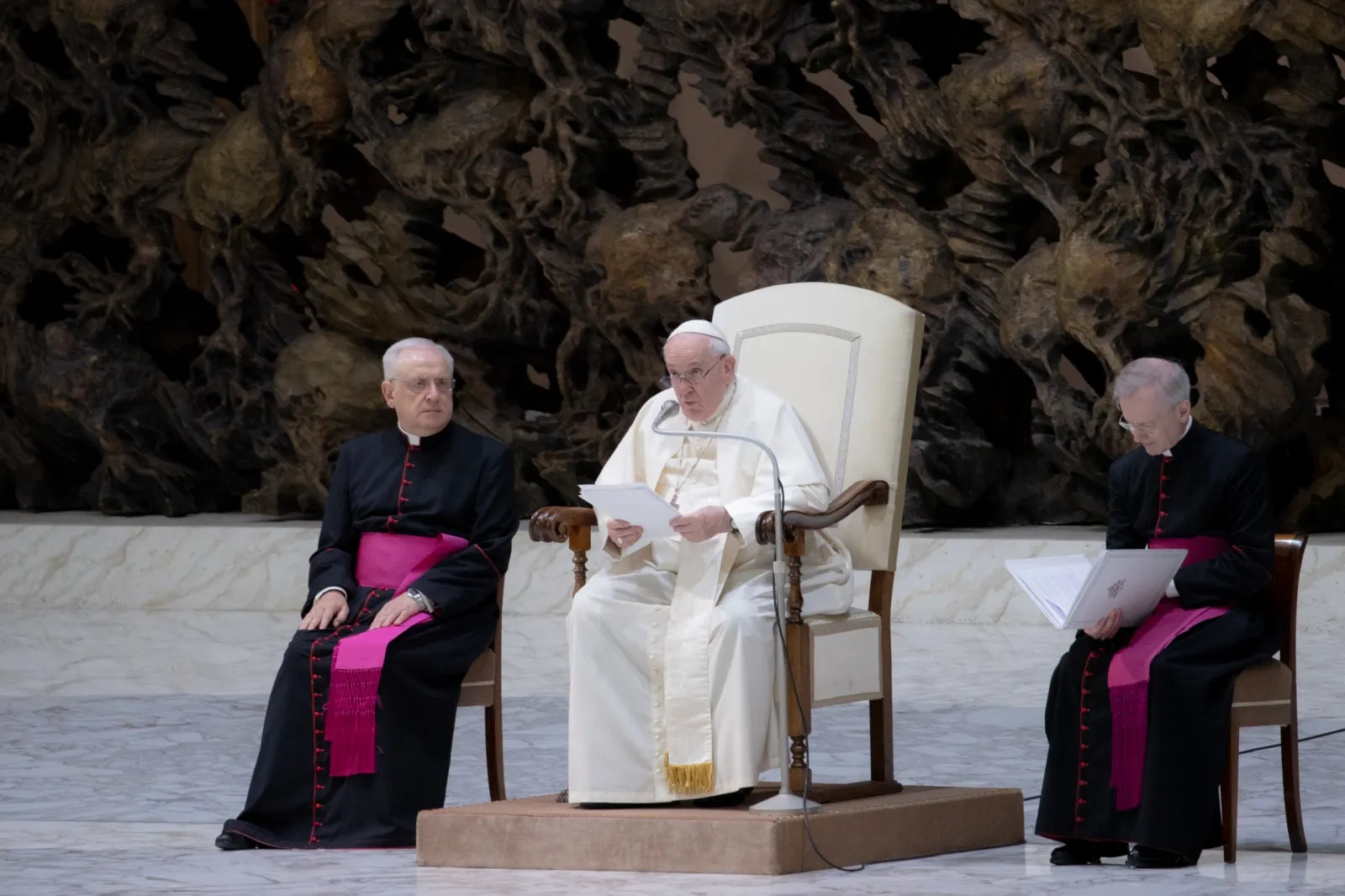
Rome Newsroom, Aug 31, 2022 / 03:15 am (CNA).
Pope Francis has launched a new catechesis series on spiritual discernment.
The pope announced on Aug. 31 that he will provide reflections in his upcoming Wednesday general audiences on the “demanding” work of making sound judgments, which he said requires “knowledge, experience, emotion, and the will.”
“God invites us to evaluate and choose: He created us free and wants us to exercise our freedom. For this reason, discernment is demanding,” Pope Francis said in his first catechesis on the new topic in Paul VI Hall.

“We have often had this experience: choosing something that seemed good to us and yet was not. Or knowing what our true good was and not choosing it.”
The pope explained that humans, unlike animals, can be unwilling to make the right choices.
“The Bible shows this from its very first pages,” he said. “God gives man a precise instruction: if you want to live, if you want to enjoy life, remember that you are a creature, that you are not the criterion of good and evil, and that the choices you make will have a consequence, for you, for others and for the world (cf. Gen 2:16-17); you can make the earth a magnificent garden or you can make it a desert of death.”
Pope Francis underlined that discernment is “indispensable for living.” He said that it requires both self-knowledge and a filial relationship with God.
“Discernment is an important act that concerns everyone, because choices are an essential part of life. Discerning choices. One chooses food, clothing, a course of study, a job, a relationship. In all of these, a life project is realized, and so is our relationship with God.”
The pope noted that “great choices can arise from circumstances that at first sight seem secondary, but turn out to be decisive.”
He pointed to the example of when Andrew and John first met Jesus and responded to his call, “Come and see.”
“Years later, the Evangelist will continue to remember that encounter that changed him forever, and he will even remember the time: ‘It was about four o’clock in the afternoon’ (Jn 1:39). It is the hour when time and the eternal met in his life,” Francis said.
Pope Francis’ spiritual education as a Jesuit priest before he became pope formed him in St. Ignatius’ writing on discernment of spirits and examination of conscience.
Throughout his pontificate, Francis has often spoken about discerning God’s will and listening to the Holy Spirit’s voice in homilies and speeches—recently with regard to whether or when he will retire.
At the end of the audience, the pope prayed for Iraq, where there has been an uptick in violence this week. He also noted that Sept. 1 will mark the anniversary of the start of World War II.
In his greeting to Polish pilgrims, he said: “Tomorrow you will remember the anniversary of the outbreak of the Second World War, which so painfully marked the Polish nation — and today we are living through the third. May the memory of past experiences push you to cultivate peace in yourselves, in families, in social and international life. We pray for the people of Ukraine.”
The new topic on discernment replaces the pope’s 18-week long cycle of catechesis on old age. The pope has used the combination of a wheelchair and a cane when greeting the crowd during his general audiences since last May.
“God is Father and He does not leave us alone, He is always willing to advise us, to encourage us, to welcome us. But He never imposes His will. Why? Because He wants to be loved and not feared. And also, God wants children, not slaves: free children,” he said.
“And love can only be lived in freedom. To learn to live one must learn to love, and for this it is necessary to discern. … May the Holy Spirit guide us! Let us invoke Him every day, especially when we have choices to make.”
If you value the news and views Catholic World Report provides, please consider donating to support our efforts. Your contribution will help us continue to make CWR available to all readers worldwide for free, without a subscription. Thank you for your generosity!
Click here for more information on donating to CWR. Click here to sign up for our newsletter.





Well he obliterated the Christian understanding of mercy to longer include mercy for the vicims of sin and restrict its meaning to those “burdened” by their feelings of guilt. Wny not continue his obliteration of the traditional understanding of discernment. It used to mean choosing between two goods, like when a young adult contemplates a career decision. Now Francis allows it to mean allowing ourselves to choose an immoral act as “what God is asking of us” in our concrete circumstances.
Sitting on the horns of a dilemma can cause hurt. Discernment adds life to one’s life span. Saint Ignatius of Loyola – Pray for us.